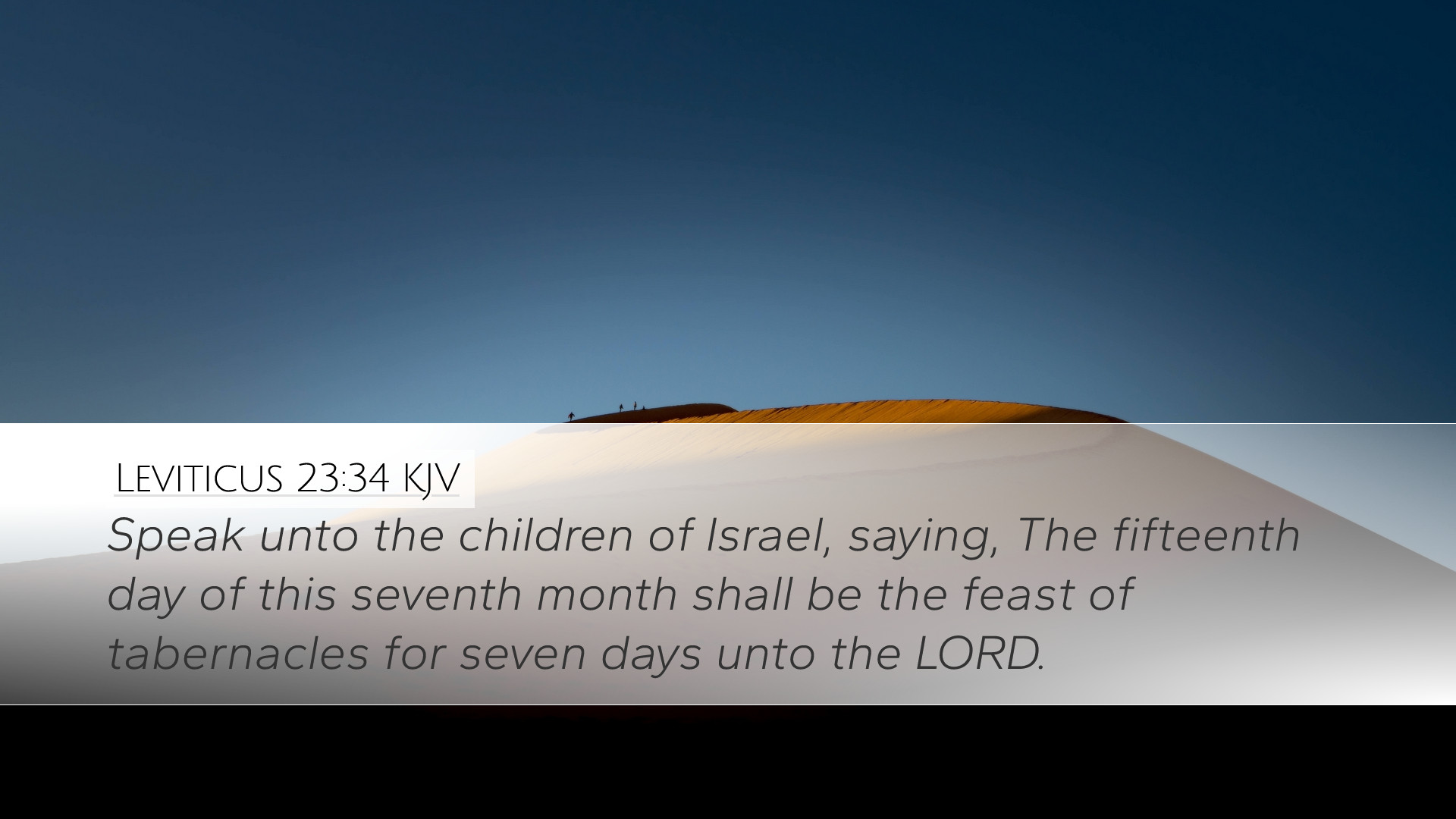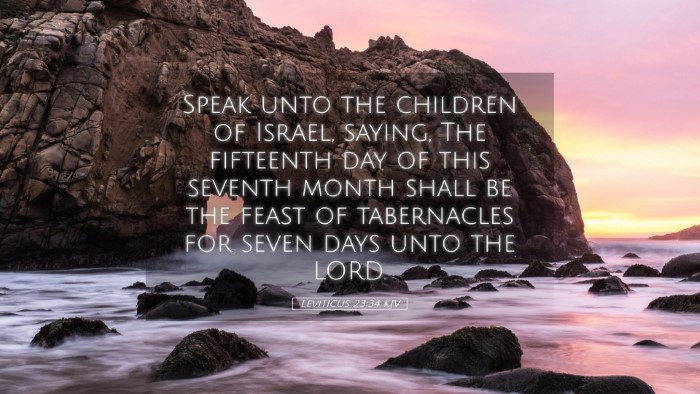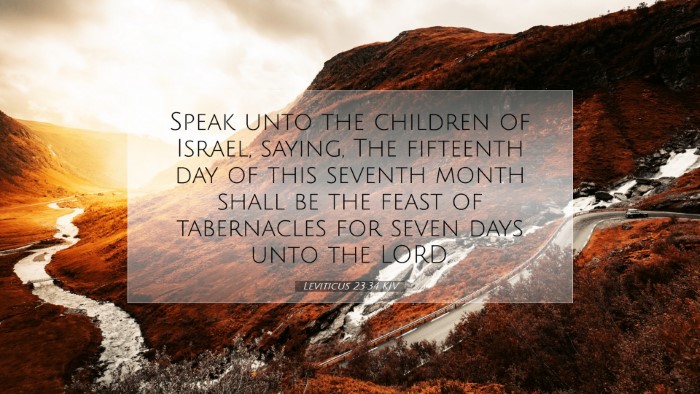Commentary on Leviticus 23:34
Leviticus 23:34 states: "Speak unto the children of Israel, saying, The fifteenth day of this seventh month shall be the feast of tabernacles for seven days unto the LORD." This verse marks the initiation of the Feast of Tabernacles, also known as Sukkot, a significant festival in Israel’s religious calendar.
Historical Context
The Feast of Tabernacles was instituted after the Israelites' exodus from Egypt, celebrating their journey through the wilderness and God's provision. This feast not only commemorates their historical experience but also serves as an acknowledgment of God’s faithfulness.
Theological Significance
Throughout Scripture, the observance of festivals has profound theological implications. Matthew Henry emphasizes that the Feast of Tabernacles represents God dwelling among His people, echoing the themes of presence and provision. Albert Barnes notes that this feast reminds the Israelites of their dependency on God's sustenance during their tribute through the wilderness.
God's Presence Among His People
According to Adam Clarke, the feast symbolizes the divine habit of God to inhabit the praises of His people. The temporary structures built during this festival represented the transient nature of life on earth compared to the eternal dwelling God offers. Therefore, the command given in Leviticus points to a deeper theological truth: the ultimate goal of God's presence in the midst of His people.
Community and Worship
The communal aspect of this feast cannot be overlooked. Barnes asserts that this celebration fosters unity among the tribes of Israel as they gather to worship together. It reflects an invitation to communal stewardship and gratitude towards God, forming bonds among God’s people as they reflect on His gracious acts.
Cultural Practices
The practices associated with the Feast include dwelling in booths (sukkot), waving branches of palm, willow, and myrtle, and rejoicing in the harvest. Henry notes that these practices signify humility and remembrance of the past, offering a tangible way for God’s people to reflect on their dependence on God throughout their generations.
- Building Booths: The booths represent the physical and spiritual shelter provided by God.
- Waving Branches: This act symbolizes joy and celebration of God's provision.
- Harvest Thanksgiving: It acknowledges God as the giver of all good things during the harvest season.
Application for Today's Believers
The teachings embedded in Leviticus 23:34 extend beyond its historical and cultural boundaries. For modern Christians, the feasting remains relevant as it challenges believers to celebrate God’s ongoing provision and presence. Clarke suggests that the spirit of joy during this celebration fosters gratitude, which is vital in the life of faith.
Additionally, the Feast of Tabernacles points toward eschatological themes; it symbolizes the final dwelling of God with humanity as fulfilled in Christ. Henry's commentary emphasizes that while the physical booths served a purpose in ancient times, contemporary believers find their hope in the ultimate reality of God's eternal kingdom, where He will dwell with His people forever.
Conclusion
In considering Leviticus 23:34, believers are reminded of God's faithfulness throughout history, His desire to be present among His people, and the call to community worship. As we engage with Scripture, may we find inspiration to celebrate, reflect, and live in the light of God's provision.


